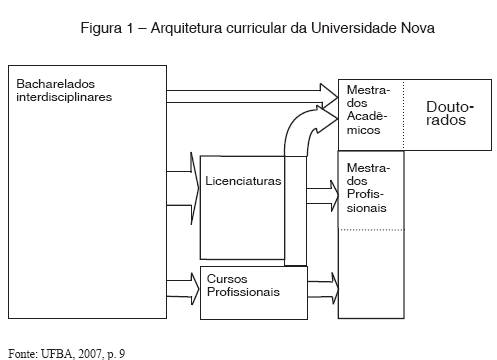This article analyzes what is conventionally known as the Bologna Process, or the making of a "public policy of a meta-State for a University meta-field" that corresponds to a supranational educational policy for all the European Union membership States, with the goal of building a "European higher education space." The political process and the institutional reforms of each national government intends to establish the new European higher education system until 2010, with 45 countries - the number reflects current developments, including the EU membership States and 18 non-EU countries. Given the high quantity and the myriads of "national subsystems" and educational institutions involved, "quality assurance" becomes a major task in this process. We analyze, in the same way, the recent higher education changes in Brazil, where the so-called "New University" project and the Program of Support for the Restructuring and Expansion of Brazilian Federal Universities (REUNI, in Portuguese) are the clearest expressions of the reshaping of the higher education system (in accordance with the Bologna standards) after the dramatic changes made by Fernando Henrique Cardoso's government (1995-2002) and continued by Luiz Inácio Lula da Silva's government (2003-2006; 2007), despite some differences between both administrations.
Bolonha's Process; Higher education evaluation; Universidade Nova; REUNI

